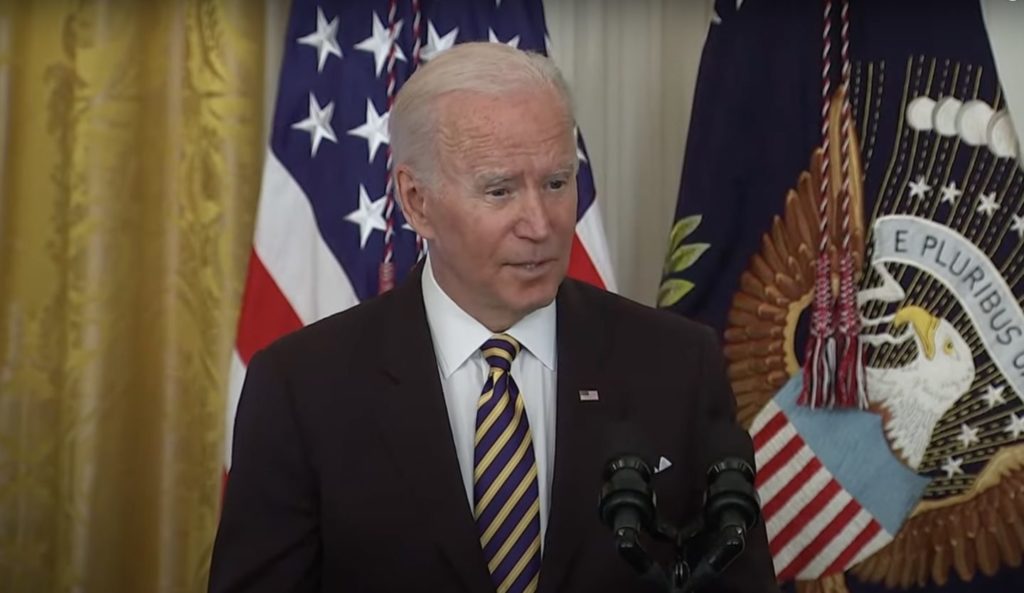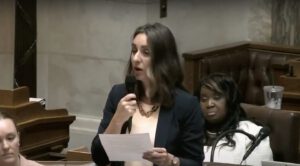Should teachers treat your children as they would their own? Maybe not, but they will
President Biden recently said something both true and…


Pres. Biden addresses Teachers of the Year winners last week.
President Biden recently said something both true and disturbing. He told Teachers of the Year winners what makes them excel: they treat their students like their own children when they’re in the classroom.
“They’re all our children,” the president said last Wednesday. “And the reason you’re the Teachers of the Year is because you recognize that. They’re not somebody else’s children; they’re like yours when they’re in the classroom.”
The last sentence went viral for obvious reasons: The president appears to suggest that children belong to teachers while in the classroom – a sentiment that runs counter to the parents’ rights movement and its well-founded concern that schools and educators are overstepping their bounds.
Six times the president used the phrase “our children” in the speech. In the excerpt above, he makes his point clear: Teachers have a collective responsibility to their students and should teach and handle them as they would their own children.
This is both natural and disturbing.
It’s natural that teachers who are parents would treat, care for and instruct their students according to their own values, as they would do in their own home. But natural does not make it right.
And it is disturbing because a teacher may well “parent” a student completely contrary to the values of the child’s parents. In fact, that’s exactly what’s been happening all over the country.
This is why many parents have lost trust in public education. They’re showing up to school board meetings rightfully angry. They feel their parenting has been subverted. Some are suing their schools. Others are winning school board seats. Many are leaving, heading to private education.
These parents feel like public school teachers and officials have seduced their children, making the phrase “our children” repulsive.
School choice lets parents choose the “best” teachers
Parents who’ve lost trust in public education have limited options.
They can try to reform their public school. They can hold the school accountable by getting involved – voting, attending meetings or even running for school board. And they can stay informed of school policies and curriculum and get to know the teachers.
Or they can choose a private education by homeschooling or enrolling in a school that holds its teachers accountable to teach according to certain values. In this scenario, the school can serve as a trusted parental partner where teachers actually reinforce parental values.
What’s not to like about the second option? Cost. For some families in many states, alternatives to public education simply are not affordable.
This is why school choice matters. States such as Florida and West Virginia have robust school choice programs that enable parents to use the same funding their children receive in public education to attend an alternative, better option.
After all, they are your children. But some think they’re “ours,” which is why parents must choose teachers they can trust.



